Gas Explosions, Chinese Organic Fertilizer, Contaminated Coconut oil etc. – A Systemic Failure!!
-An expert View from a World Standards and Testing Professional
Prof Lalith Goonatilake- Retired Director- Trade Capacity Building Branch, United Nations Industrial Development Organization (UNIDO), Austria. Former Professor of Industrial Management- University of Kelaniya.
In recent months, there have been several issues of public concern in Sri Lanka, relating to standards and consumer safety. The LPG gas explosions, the issue of Chinese fertilizer ship, Aflatoxin contaminated coconut / palm oil, and the measurement of the size of a coconut using a metal calliper etc. are indicative of the issues.
In every country there is an institutional mechanism to safeguard consumers. Namely the National Standards Institution (e.g. Sri Lanka SLSI), Consumer Association/ Authority, and Testing Laboratories. At the Global level, the International Standards Organization (ISO) develop standards, International Laboratory Accreditation Cooperation (ILAC) defines standards for testing laboratories and promote global mutual recognition of test results, International Accreditation Forum (IAF) sets guidelines and mutual recognition of Certifications (i.e. ISO 9001 quality standard), BIPM is the international organization established by the Metre Convention, through which Member States act together on matters related to measurement science and measurement standards. International Organisation for Legal Metrology (OIML), deals with the use of measurements in commercial transactions (weights and measures).
Sri Lanka Standards Institution (SLSI) has been set up in 1964 “To undertake, promote and facilitate Standardization, Measurement, Quality Assurance and related activities in all sectors of the national economy ----Safeguard the interest of consumers”. https://www.slsi.lk/index.php?option=com_content&view=article&id=9&Itemid=124&lang=en
In the formative years SLSI received full technical assistance from UNIDO/UNDP.
National Standards bodies such as the UK- British Standards Institution have developed the BSI “Kite mark” to indicate the quality and safety of British Consumer products. The European Union has the CE mark, where even a soft toy imported from China to the EU must demonstrate compliance that it is safe for children. In Sri Lanka, SLSI has defined standards on most consumer products for example bottled water and cement. Those complying with the standard carry the SLS mark, as you would see in each bottled water or a bag of cement. Products are regularly tested to verify compliance to the standard.
The second part of Consumer protection function is the Control of Weights and Measures in commercial transactions. In Sri Lanka, we have the “Measurement Units, Standards and Services Department” (MUSSD) that is vested with this function ( http://124.43.23.68/mussd/?page_id=526)
It has the responsibility for the “Verification of weighing and measurement instruments initially and then the continued inspection. By the implementation of penalties that are set out in the law, for the protection of the consumers and educating the consumers of the legality of the measurement system, giving approval to weighing and measuring equipment used in trade and industry”.
MUSSD visits markets to see the weighing scales used correctly measures the weights or cheats customers. Non-Conforming weighing scales are confiscated, and traders taken to court and fined. In petrol stations MUSSD takes petrol and diesel from pumps and checks whether the 1 Litre shown in the pump is exactly one litre or less. Similarly, Petroleum Corporation and SLSI checks whether Petrol and Diesel have the specified Octane 92 and 95 etc. Both SLSI and MUSSD by acts of parliament assigned the responsibility and the authority to ensure consumer safety and product quality.
Recent LPG Gas Issue
The last 4 weeks, we hear everyday gas related explosions around the country., as well as loss of life. Politicians have given various excuses. The current LPG safety issue probably arose from the close to 300% global LPG gas price increase during July 2020 to Oct 2021. https://tradingeconomics.com/commodity/natural-gas).
As we do not have a price formula for LPG gas nor for petroleum), and the reluctance to increase prices, a “novel” questionable method was probably developed to tamper with the gas composition and reduce cost.
In April, Litro Gas announced a new “PREMIUM” 18 Litre HYBRID cylinder. The weight of the newly introduced product is 9.18 kilograms. There was also a price reduction of Rs 100/= per cylinder. (https://www.newsfirst.lk/2021/04/24/public-deceived-by-new-gas-cylinder/)
What is meant by PREMIUM and HYBRID need clarification from Litro. LPG Cylinders have Butane (80%) and Propane (20%)- this is a widely used international standard. Butane per gallon costs approx. Rs 6 more than Propane. It is highly likely the composition of the gas- has been changed to increase the Propane component, to overcome the global Gas price increase. The LPG Gas regulators have been designed for the Butane (80%) and Propane (20%) composition. When the propane component is increased, the valve is not able to withstand the increased pressure and leaks occur creating an explosion risk. No one has so far admitted that the gas composition has been changed. There are several “Governance and Institution Failure” issues here.
Additionally, the change of Butane/Propane share results in a different calorific value. Consumers have complained that the new cylinders last for only 3 weeks, whereas the old cylinder lasted four weeks. If true, this is a blatant cheating attempt, by the Gas sellers.
Since the beginning, gas cylinders were measured by KGs. Consumers ask gas dealers to weigh the cylinder before buying. The new PREMIUM”18 Litre HYBRID litre is marketed as 18 Litres. How can anyone check the volume (litres) of gas delivered?
ISO has published international standards for LPG. (https://www.iso.org/standard/81928.html). In Sri Lanka, SLSI Standard 712 of 1994, and ISO 14245:2012, specifies requirements for LPG supplied in cylinders or bulk, intended for use in domestic, commercial and industrial use. It also specifies technical requirements for Gas cylinders and LPG cylinder valves. The recent Litro changes on LPG weight and gas composition raise two fundamental questions:
- Was SLSI and Consumer Authority informed about the change of Butane/ Propane ratio, and approval obtained to change the composition? If so, it is the responsibility of SLSI to ensure the changed gas composition is safe for the existing/ approved gas valves to manage.
- The method of measuring gas content was changed from KG to Litres, a major shift. Did MUSSD authorise the changed measurement method?
If no such approval was granted, Litro officers responsible should face disciplinary enquiries. Also, the SLSI and MUSSD officers need to be questioned why they allowed such a change affecting consumers? A related issue is the Politicisation of state-owned entities such as Litro and SLSI, MUSSD. Are the senior officers appointed to such important institutions have the requisite technical qualifications?
Another issue is the action Litro has taken once many gas accidents are reported. When such faults are identified for instance in the car industry, millions of cars are recalled for repair and fault rectified and handed back. Litro has only resorted to one-page newspaper adverts and TV commercials advising customers on how to take better care in fitting the gas regulator and the cooker. No cylinders were recalled and for customers whose cookers got damaged, no compensation was given.
Considering the recent tragic death of a Litro customer from a gas related explosion, this could now be considered a case of criminal negligence. It is essential that Police enquiries are commenced, and even international assistance sought to conduct a full enquiry. Samples of gas cylinders need to be sent to independent labs (such as SGS, Intertek etc), to check the actual composition of the gases (Butane/Propane %) and the cylinder valves capacity to hold pressure, and compare with the SLSI and International standards.
Proposed Merger of LITRO & LAUGFS
A new company is to be formed merging Litro and Laugfs. https://www.sundaytimes.lk/210606/news/controversy-over-proposal-to-merge-litro-with-debt-ridden-laugfs-446127.html)
It was revealed in parliament that, Laugfs Terminal Company is Rs 22 Bn is debt to Bank of Ceylon and Peoples Bank and facing significant financial difficulty. In such a situation, why should Litro (a state owned enterprise) having 80 % of the market share merge with a heavily indebted private company and take over the huge debt? If Laugfs goes into liquidation, its assets are only of use to Litro and Litro can easily buy the assets for a bargain price. Further, Litro can easily expand capacity and cover the 20% production currently covered by Laugfs. There is no justification for Litro to even consider a merger with Laugfs.
Aflatoxin Contamination of Coconut and Palm oil
Few months ago, a major national issue was the contamination of imported palm oil and coconut oil and the presence of Aflatoxin. (https://ceylontoday.lk/news/carcinogenic-coconut-oil-back-in-market-actcoma). Exposure to aflatoxins through diet can lead to serious health complications. Aflatoxins predominately affect the liver and kidneys but can also negatively impact reproductive organs.” (https://www.ft.lk/columns/The-bitter-truth-about-aflatoxins/4-716364). A major research study found that nearly 38% of the coconut oil samples were contaminated with aflatoxins. (https://www.sciencedirect.com/science/article/abs/pii/S0956713519300659).
It is the responsibility of SLSI to ensure that imported palm/coconut oil are free from harmful levels of aflatoxin. Director General of Sri Lanka Standards Institute (SLSI) Dr. Siddika Senarathne has revealed that there are several other food items which contain cancer causing toxins.
SLSI Director General further stated that SLSI must protect domestic producers and it is acceptable for consumers to be exposed to harmful chemicals for a short time. (චුට්ටක් චුට්ටක් වස කෑවට කමක් නෑහ)
(https://www.youtube.com/watch?v=u3fjY0w3OuI&t=674s) 10 mt 46 sec). This is a violation of the key responsibility of SLSI to protect consumers.
The position taken by SLSI DG that it is acceptable to consume small portions of “poison”, is hilarious and goes against the very principles under with SLSI has been established (Consumer Protection), and the mandate given by the Parliament. A parallel solid example is the EU Aflatoxin standard, which is aimed to reduce approximately 1.4 deaths per billion a year. This standard when fully imposed, will decrease African exports to the EU by 64 percent or a loss of US$ 670 million to the Continent. Books and articles have been written on the EU Aflatoxin standard. The EU safeguards its citizens by applying a very strict Aflatoxin standard, whereas in Sri Lanka SLSI publicly states that there is no harm in our consumers eating “mildly” contaminated coconut/palm oil.
The Chinese Organic Fertilizer Ship issue
The other major controversy is the Qingdao Seawin Biotech Group Co., Ltd seaweed-based organic fertilizer sent to Sri Lanka. Tests carried out by the National Plant Quarantine Service (NPQS), indicated that the cargo was contaminated with bacteria of the genus Erwinia. Erwinia's many species are responsible for plant diseases like fire blight and bacterial wilt, which can cause serious crop damage. The ship was circling Sri Lankan waters for close to 70 days and the Chinese Embassy was putting pressure to accept the cargo. At one point the Chinese Company tested the fertilizer in a “third party” lab and challenged the Sri Lankan lab reports.
There are several controversial issues here and particularly not understanding basic trade rules. Both Sri Lanka and China are members of the World Trade Organisation (WTO). Under the WTO, the WTO Agreement on the Application of Sanitary and Phytosanitary Measures (SPS Agreement), stipulates that every country has a right to set specific standards and safeguards to protect their human, plant and animal health. WTO mandates that standards so set, must be backed up by scientific evidence. As per the SPS agreement rights, Sri Lanka can ban fertilizer contaminated with Erwina.
(https://www.wto.org/english/tratop_e/sps_e/spsagr_e.htm)
Anyone visiting Australia would have witnessed, how strictly plant and animal life is protected. Even the apple given to eat in the aeroplane cannot be taken to the country. Wood products even as souvenirs are not allowed fearing the introduction of diseases, affecting Australian Agriculture. Similarly, every aeroplane landing in Sri Lanka prior to landing the aircraft. the cabin is sprayed with an aerosolized insecticide while passengers are on board.
Whether Sri Lankan Government in ordering the fertilizer stipulated the requirement to comply with the Erwina issue is not known. If no such condition was stipulated when the Letter of Credit was opened, the blame is on Sri Lanka side and China has every right to seek compensation. If the Erwina issue was stipulated as a quality / safety requirement, then Sri Lanka has the right to reject. The Government has now decided to pay 75% of the cost (USD 7.5 Mn), though no fertilizer was delivered. The Government must share information on the order placed and whether any bio safety condition was attached to the contract. If no such Bio-safety requirement was included as a condition, the responsible Government officials must be questioned and ordered to pay the $ 7.5 Mn settlement.
Other confusing issue is the Seawin Company threat to report the matter to the UN-Food and Agriculture Organization (FAO). FAO has nothing to do with a trade dispute whether the product concerned is related to agriculture or not. Trade disputes are referred to WTO. Only issue Seawin can raise with WTO is the Sri Lanka Erwina standard is not based on scientific evidence. It cannot challenge Sri Lanka right to introduce a standard to safeguard the country’s plant and animal safety, which is provided under the WTO SPS agreement.
Gazetted Coconut Measuring Devise Issue
The final standards/measurement issue is last year’s Coconut supply shortfall, where a steep rise in coconut prices were witnessed and the Government instructed the Consumer Authority to address the issue. Aa a price control measure a gazette notification stated that a coconut with a circumference of 13 inches and above could be sold at a maximum price of Rs 70, a coconut between 12 and 13 inch circumference at Rs 65 and a coconut below 12-inch circumference at Rs 60.
Sri Lanka is one of the first developing countries to adopt the meter convention. As such ,for a trade measurement we cannot use “Inches”, but Centimetres. The measuring devise shown on the TV was a circular calliper. Every measuring devise under the country Weights and Measures act, must be authorised by MUSSD. Whether SLSI raised an issue on using “inches” where SLSI is vested with the responsibility to implement the Metre convention and whether MUSSD authorised the measurement devise/ calliper is not known. Anyway, the measuring of coconuts has now stopped, but how SLSI/MUSSD handled the issue remains unanswered.
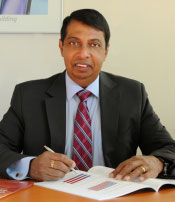 Prof Lalith Goonatilake
Prof Lalith Goonatilake
B.Sc. Eng (Aston), B.Sc.Econ (Lond), Ph.D. (Aston)
C.Eng.; M.I.Mech.E.; M.I.Prod.E.; M.B.I.M
Author: Professor Lalith Goonatilake was the former Professor of Industrial Management, University of Kelaniya and had a 23-year carrier with the United Nations Industrial Development Organization in Vienna. He was the founder Director of the UNIDO Trade Capacity Building Branch. In that capacity he has initiated the signing of Memorandum of Understanding with ISO, ILAC, IAF, BIPM and OIML pledging to strengthen developing country capacities to become effective partners in the global institutional framework, promoting standards, testing, certification, measurement and calibration. He assisted over 60 developing countries to develop their standards institutions and laboratories. In the annual international conferences of ISO, ILAC/IAF, BIPM/OIML, where all developing country national institutes participates, he was the keynote speaker presenting developing country challenges and UNIDO assistance upgrading developing country capacities. In some countries the national standards institutions and testing labs were established, equipped and capacity built under his guidance. In Sri Lanka, nine testing labs in SLSI. ITI and TT&SC were equipped, staff trained and internationally accredited under his leadership, funding and guidance. He also initiated the ISO 14000 Environmental standard in Sri Lanka, training consultants and auditors and assisted the first ISO 14000 accreditations in Sri Lanka.
He initiated two landmark publications with ISO and ILAC that guides developing countries in the area of standards, consumer protection, testing, certification and accreditation:
· ISO and UNIDO publish new book on organizing standardization to assist developing and transition economies: https://www.iso.org/news/2008/09/Ref1155.html
· Building trust - The Conformity Assessment Toolbox: https://www.iso.org/publication/PUB100230.html
He has produced two educational videos – “Marketing Globally” and “Metrology for Industrial Development” to educate the public and exporters on standards, measurement, certification, testing and accreditation.
-
Marketing Globally- https://www.youtube.com/watch?v=HQThXOK_ozU
-
Metrology for Industrial Development- https://www.youtube.com/watch?v=1Gyzgsxx9go
-
Still No Comments Posted.



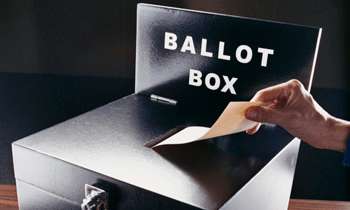

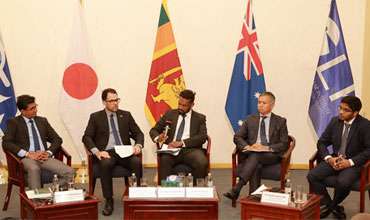
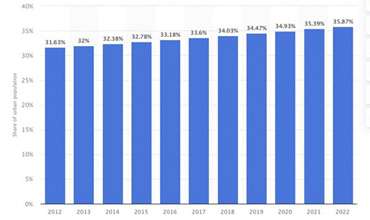
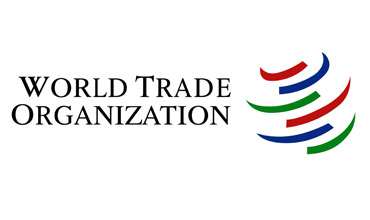
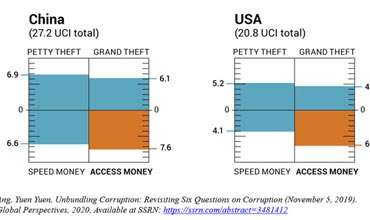
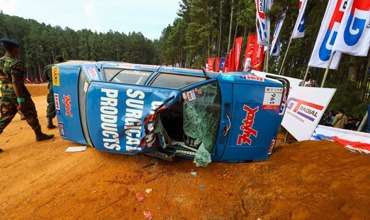
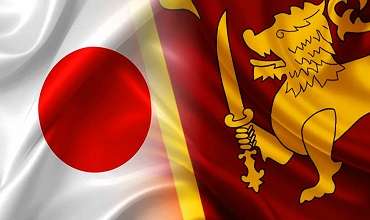

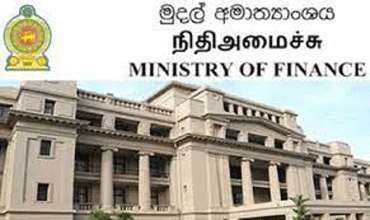
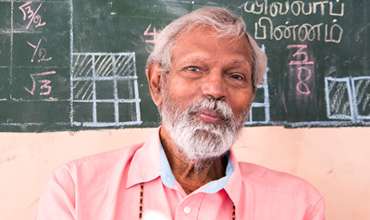
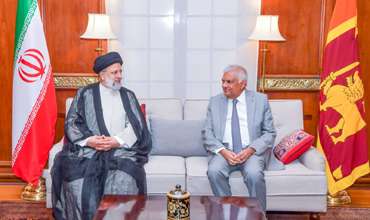
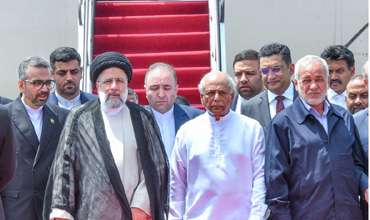
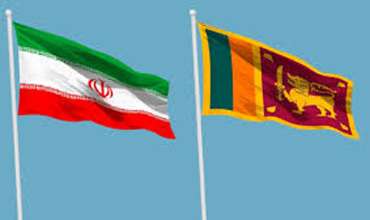
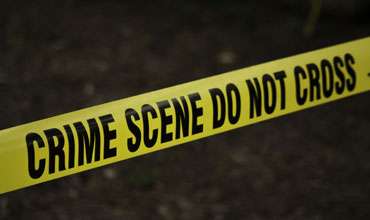
Leave Comments